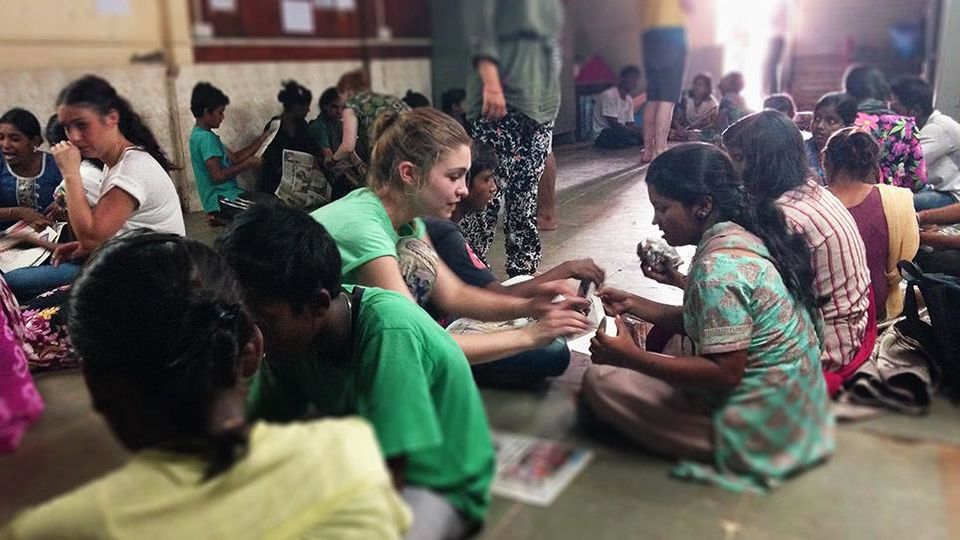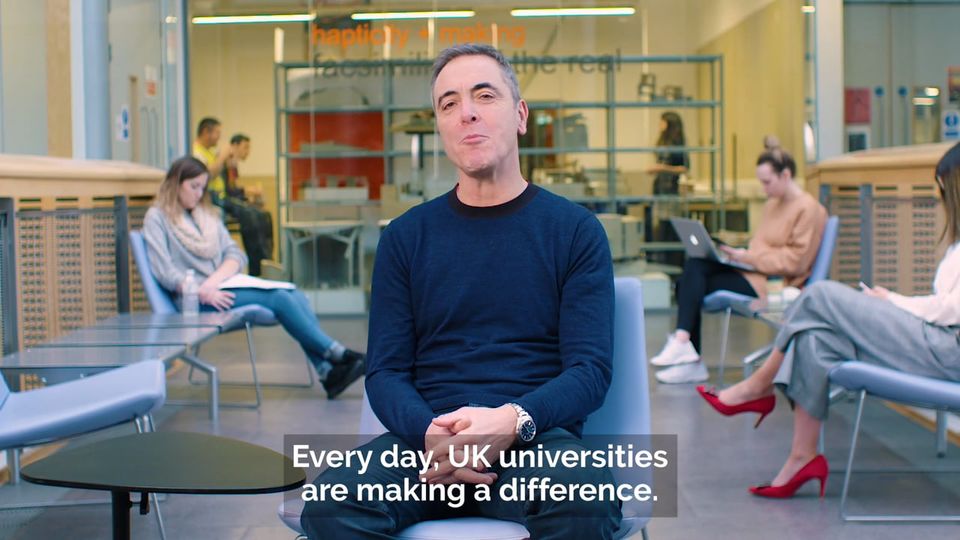Central Recognised in UK’S Best Breakthroughs List

A social initiative from Central has been named as one of the UK’s 100 best breakthroughs for its significant impact on people’s everyday lives.
Dr Selina Busby’s Concrete Utopias in Dharavi is honoured in the UK’s Best Breakthroughs list of the last century for its pioneering work in Dharavi. Known as ‘the largest slum in India’, Dharavi is an area that has been given worldly visibility by Danny Boyle’s film Slumdog Millionaire. An estimated 1.5 million people live in the settlement, which is only one square mile in size and many families live in cramped spaces without any sanitation or clean, running water.
For nearly a decade, Dr Selina Busby, course leader in MA Applied Theatre at Central, and her students have been working with an NGO in Mumbai and alongside a collection of local Indian artists and practitioners on the project. The aim is to improve English language skills and create a platform for discussions and creativity between different cultures through Applied Theatre.
The NGO works at a community level, empowering women in impoverished communities to be the catalyst of change in their own right. Many of the young participants in Dr Busby’s project are homeless and have no responsible adults in their lives. Workshops that encourage learning are facilitated through the mediums of theatre, dance, performance and play.
The list of breakthroughs demonstrates how UK universities are at the forefront of some of the world’s most important discoveries, innovations and social initiatives, including the discovery of penicillin, work tackling plastic pollution, ultrasound scans to check the health of unborn babies and the establishment of the Living Wage.
The list also highlights the less celebrated but vital breakthroughs that transform lives, including a specially-designed bra to help women undergoing radiotherapy; a toilet that flushes human waste without the need for water; the development of a new scrum technique to make rugby safer; a sports initiative that aims to use football to resolve conflict in divided communities; - and even work to protect the quality of the chocolate we eat.
The list was compiled by Universities UK, the umbrella group for UK universities, as part of the MadeAtUni campaign to change public perceptions of universities and bring to life the difference they make to people, lives and communities across the UK. A number of notable individuals were also enlisted to help support the campaign, including Becky Adlington, Dame Katherine Grainger, Alastair Stewart, Bobby Seagull and Central alumnus James Nesbitt.
It follows independent research undertaken by Britain Thinks which found that the public has little understanding of the benefits of universities beyond undergraduate teaching. The findings show that research is one of the key triggers to change opinion about universities but for many people, it is an abstract concept.
Professor Dame Janet Beer, President of Universities UK, said: “Universities really do transform lives. The technology we use every day, the medicines that save lives, the teachers who inspire – all come from UK universities and the important work being done by academics.
“The UK’s Best Breakthroughs list is a testament to the difference that universities make to people’s lives and we want everyone to join us in celebrating the work they do.”
The UK’s Best Breakthroughs list: 100+ Ways Universities Have Improved Everyday Life was put together in partnership with universities across the UK. As part of the MadeAtUni campaign, every university in the country was invited to nominate the one thing from their institution which they believe has had the biggest impact on people, lives and communities. Over 100 universities submitted a nomination. The entries cover health, technology, environment, family, community and culture and sport.
You can find out more about the UK’s Best Breakthroughs and the MadeAtUni campaign here.

